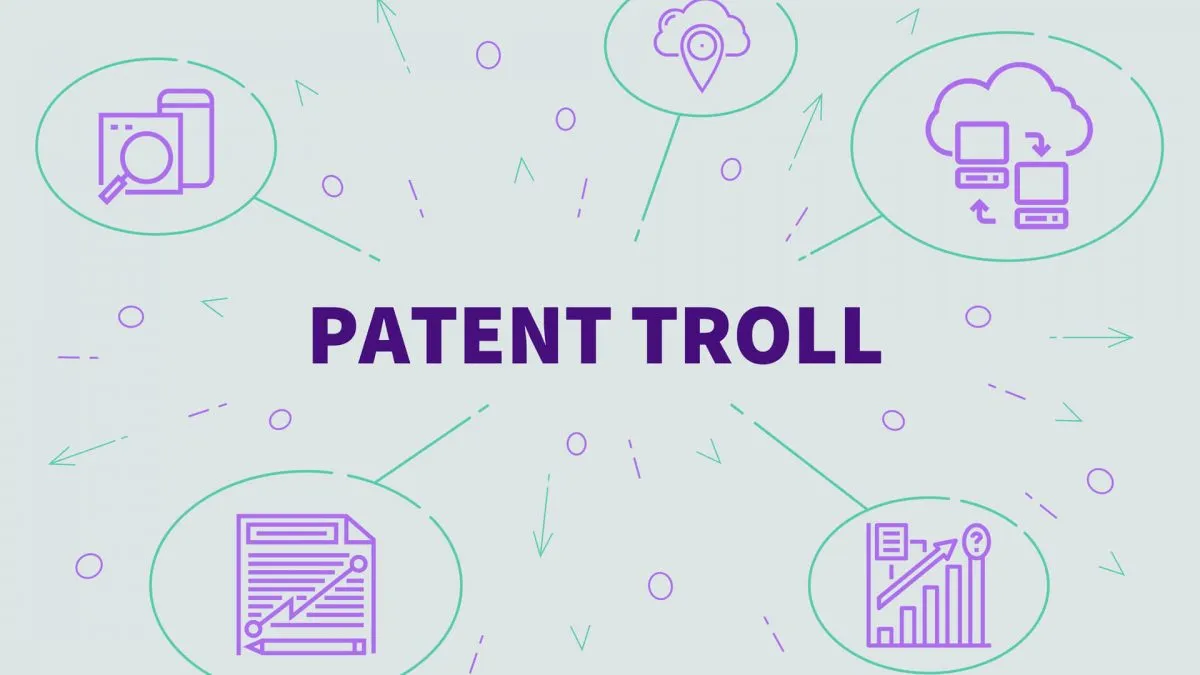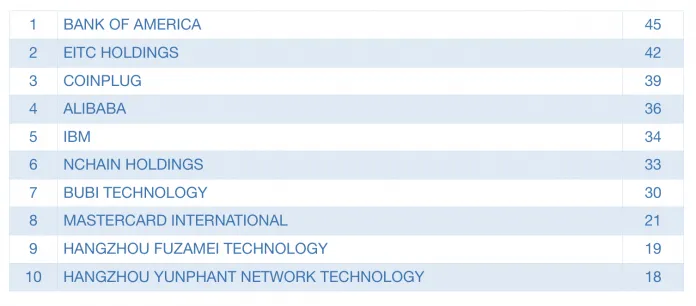
When one thinks of the premises of blockchains, names like Satoshi Nakamoto or Nick Szabo come to mind. Individuals, who place the principles before profit. Innovators, for whom open source is more important than filing patents. The only secret kept by Satoshi is his identity. It is therefore surprising to learn that the company with the largest number of blockchain patents is Bank of America (BoA).
Bank of America: the outsider of blockchain patents
Since the first block of Bitcoin was mined in 2009, more than 2,000 patents have been filed. In the early years, the number of patents filed remained low, but this figure exploded in 2016. Some of the companies in the top ten are to be expected, such as Bitflyer and IBM, whose interest in blockchain is well documented . The computer giant has filed a total of 34 patents related to cryptocurrency. In 2017, more than 1,250 patents have been registered worldwide. This shows that companies have finally seized the potential of the block-chain.

However, some entries on the list are unexpected. Either because they have expressed little interest in cryptocurrency, or because they are not often associated with advanced technologies. The biggest surprise remains the first place, claimed by Bank of America, with no less than 45 patents.

The Bitcoin Patent Report also reveals that 50% of cryptocurrency-related patents come from China (910). The United States follows with (676), then the United Kingdom (112) and South Korea (98).
Bank of America serving the Blockchain?
A patent grants its owner exclusive rights to an invention. The invention is protected for a defined period, usually 20 years. Although the patent is designed as a means of protecting the intellectual property of inventors, the system is not without its detractors who believe that patents discourage innovation and waste resources. This system has led many drifts like gigantic lawsuits, but also the practice of patent trolling.
What is a patent troll?
According to Wikipedia:
"A patent troll is, in the field of intellectual property, and more specifically in the field of licensing, a company or natural person who uses licensing and patent litigation as the main economic activity."
In short, the company buys many patents that it does not exploit with no means of production or development. Rather than using its patents, a patent troll will sell licenses for use on them. In addition, a patent troll can also use the many patents filed or purchased to initiate infringement lawsuits.
The patent troll is therefore a form of legal economic parasitism. The troll company, is placed in the wake of a major breakthrough to reap benefits without any effort. Troll patents are often prevalent in the medical or new technology sectors.
Any person or organization can file a patent, and it is not because a patent is registered and approved that technology has merit. In other words, the number of patents filed by an entity does not constitute proof of its expertise in the field.
Go further on the practice of "patent trolling":

Is Bank of America a patent troll?
It is still too early to answer this question. Before the Bitcoin Patent Report appeared, no one was aware that Bank of America had filed so many patents. Recently, the BoA announced the obtaining of an important patent for an exchange system that would automatically convert digital currencies.
Although it is too early to judge, the interest of the BoA for cryptographic patents is disturbing. The essence of cryptocurrencies and the blockchain protocol is their decentralized nature. If a centralized institution such as the BoA were to patent key parts of the sector this could be a significant brake on innovation. In addition, the BoA could distort cryptocurrencies into just one element of the US-controlled financial system.
Chris Dixon, entrepreneur and US investor said last week:
"Cryptocurrency combines the best features of the first two epochs of the internet: decentralized, community-run networks with capabilities that will exceed those of the most advanced centralized services." Chris Dixon
The attitude of the BoA could challenge this assertion. Above all, if the institution follows the path of the patent troll. That is why it is necessary to be attentive to the use that the BoA will make of the numerous patents that it has deposited. Will it provide licenses to entrepreneurs wanting to innovate? Or block them and initiate lawsuits against innovators whose patents are too close to his?